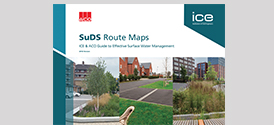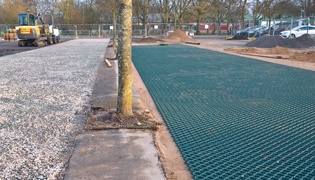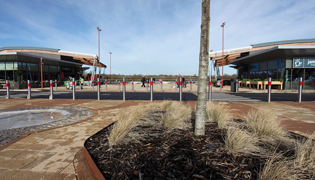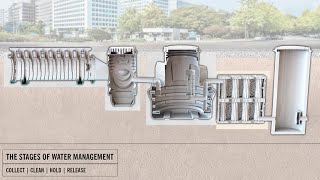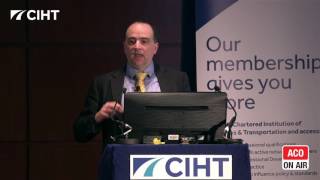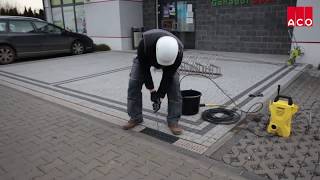ACO Academy - Autumn / Winter webinar series
Helping create knowledge champions
We have now finished our Autumn / Winter 2020 webinar series. If you missed out. Please take a look at our 2021 webinar series!
Levels of CPD
ACO have identified 3 levels of CPD in line with leading Construction Institution guidance. These levels assist you and ACO to select the educational program required for your professional development. For a full description please contact us.
Level 1 – Basic knowledge and understanding
Level 2 – Application of knowledge to a subject
Level 3 – Reasoned advice, depth and synthesis of technical knowledge and its implementation
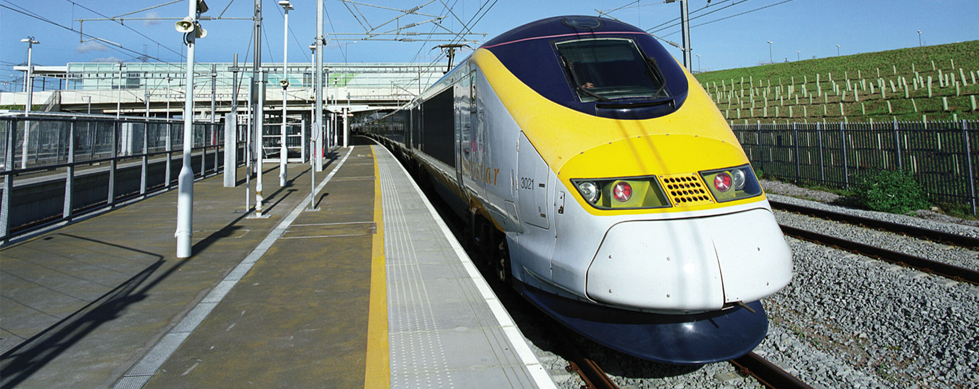
Managing Rail Surface Water
09/12/2020 - 12.30pm - Managing Rail Surface Water
Level 2
Description
The UK Rail industry goes back to the 18th Century and HS2, Crossrail and Crossrail 2 are transporting us into the future. The rail industry has a huge amount of infrastructure. Each of these areas come with a variety of restrictions and health and safety requirements for design.
In this presentation we look at the codes of practice used for the design of surface water management systems on Network rail and TfL’s networks. Providing in depth knowledge of the Surface Water Management solutions on offer and how the effect specific scenarios.
Finishing the presentation with a flurry of case studies and how ACO have worked on a variety of different projects covering the areas of; station buildings, platforms, maintenance sheds, light rail, parking and roads in line with the standards set out and how we implement SuDS within our designs.
Learning outcomes
• Learn about the history of the Rail industry and its prospective growth
• Understand Issues associated with surface water on Rail Infrastructure and the associated problems
• How to calculate channel drainage systems using the simple index approach
• Standards and guidance that effect the design, install, operation of surface water management systems
• The application of surface water management products
• SuDS (Sustainable Drainage Systems) and how these fit within Rail Infrastructure
• The design requirements for maintenance of surface water management systems
• Case studies referring to different design scenarios; Station Buildings, platforms, Maintenance depots, light rail, station car parks and roads
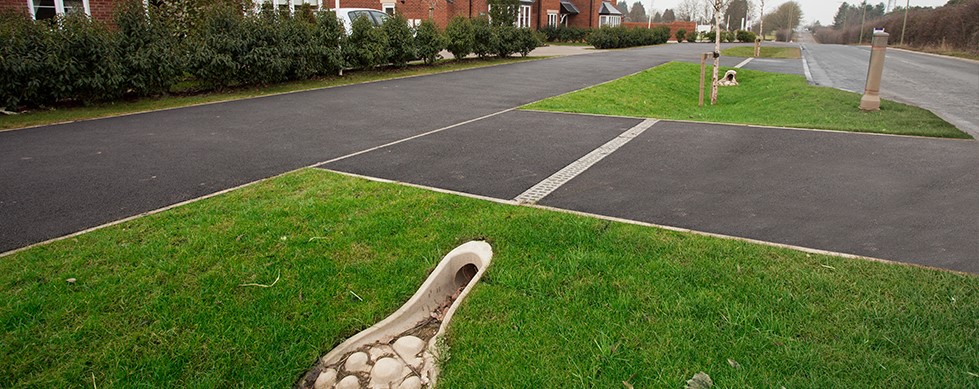
Practical and Sustainable Surface Water Management
Level 3
Description
This presentation focuses on the future of surface water management, where climate change, urbanisation, population growth and water scarcity are the key drivers for change and underline the importance of SuDS.
We look at the desirable attributes of SuDS in the form of infiltration, evaporation and evapotranspiration and, why maintenance is a crucial factor to consider when implementing a SuDS feature.
For any design, there are three ideal solution attributes; economic construction, the concept of ‘resilience’ in design and sustainability. Delivering these attributes is a challenge that all designers face and will be vital to maintaining a competitive advantage as the industry evolves.
We consider managing runoff, using both soft and hard solutions to deliver an optimised scheme, taking advantage of site topography and features of the local environment.
As members and sponsors of the new CIRIA Suds manual (C753), we explore how to instigate design features that enable compliance with Government guidance while delivering value-added benefits to the client and community.
Learning outcomes
• Learn the history, evolution and drivers of SuDS
• Understand the fundamental principles of a SuDS design
• Where to access legislation and guidance in the field of SuDS design
• Understand the balance between economics, resilience and sustainability
• Learn about government standards for water quantity
• How The SuDS Manual (C753) designs for rate and volume control
• Learn about rate management and interception losses using surface storage and green SuDS
• Understand pollution levels and the important of molecule sizing
• How to design treatment trains using The SuDS Manual Mitigation Indices
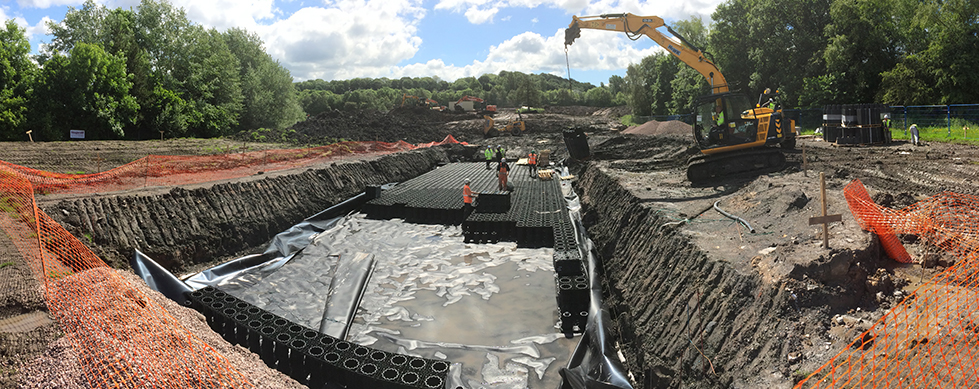
Geocellular: Specify it right
11/11/2020 - 12.30pm - Geocellular: Specify it right
Level 3
Description
Attenuation is a requirement for most construction sites across the UK. This is essential to deal with Volume Control set out in DEFRA’s Sustainable Drainage Systems - Non-statutory technical standards for Sustainable Drainage Systems, the new London Plan and the Quantity Element of The SuDS Manual. Geocellular Storage Systems are a large part of this Attenuation capacity. It is very important that the design and installation of these systems is carried out correctly.
Guidance and calculations for infiltration and attenuation are looked at from first principals, leading up to how free online software can be used. Structural calculations and the importance of FOS used in C680 will be highlighted along with what the future holds for C737.
We will then look at specification and the importance selecting the correct type of installation with a key focus on inspection and maintenance for any potential approval and adoption process. Finishing on a flurry of case studies for a variety of different scenarios. Looking at using Geocellular storage structures for both tree root protection systems and briefly roof gardens. Finally, looking at Maintenance, adopted systems and why designing for the future management of a site is of vital importance.
Learning outcomes
• Design of Attenuation and Infiltration tanks from first principals to advanced FEA software
• Where to get access to applicable design standards and guidance
• Learn the FOS used in Ciria C680 for structural loading
• Learn both current and future testing standards and design guidance
• Industry certification and information required by designers
• Geocellular product specification and function for site specific applications
• How to design for access and maintenance for the adoption of systems
• The important of logistics, storage. Transport and environmental savings
• Case studies to learn from best practice and varying interesting installations
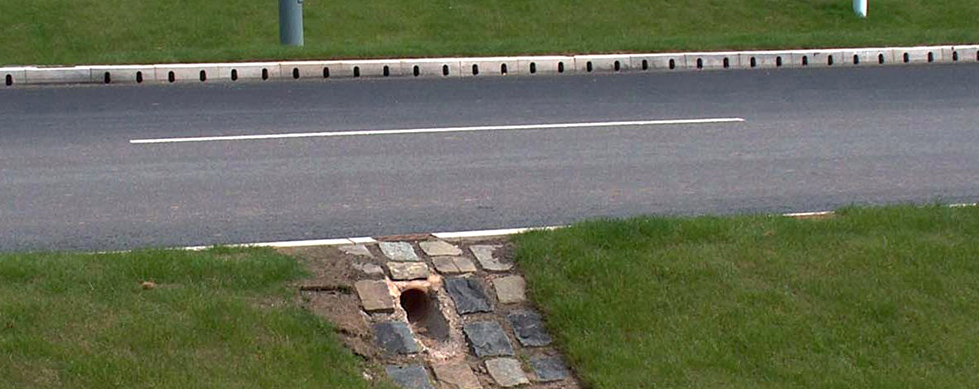
Managing Highways Surface Water
18/11/2020 - 12.30 - Managing Highways Surface Water
Level 2
Description
The UK Highway network is one of the best in the world, it is also one of the oldest. We look at some of the issues associated with designing in the highway environment. How these issues influence other areas including pathways and crossing points and what is needed to meet requirements within the current Design Manual for Roads and Bridges (DMRB).
Highways affect every part of society and the codes of practice that need to be followed and adhered to are substantial. We delve into the standards and guidance that govern Surface Water Management and attached hard and soft landscaped areas, specifically SuDS. Simplifying and extracting only the pertinent information for the designer.
We cover the four pillars of SuDS throughout and provide a detailed section for Wildlife and Biodiversity where ACO provides a range of solutions to protect and support the migration of species across our busy network.
We also consider the importance of planned maintenance for highway drainage systems and how this can be designed for even at the preliminary stages of a scheme.
Case studies are used to demonstrate how a variety of products comply with current standards and guidance to overcome numerous problems encountered in Urban and Rural highway schemes including conveyance, SuDS, Geocellular storage systems and flow controller.
Learning outcomes
• Understanding the issues associated with surface water on highways and the associated problems
• Where to get access to applicable standards and guidance
• Understanding load classes and where they are used in the highway
• The application of surface water management products in the highway
• How SuDS (Sustainable Drainage Systems) fit within a highways context
• Understanding the design requirements for maintenance of surface water management systems
• How to integrate Wildlife and Biodiversity products to enhance a highway design
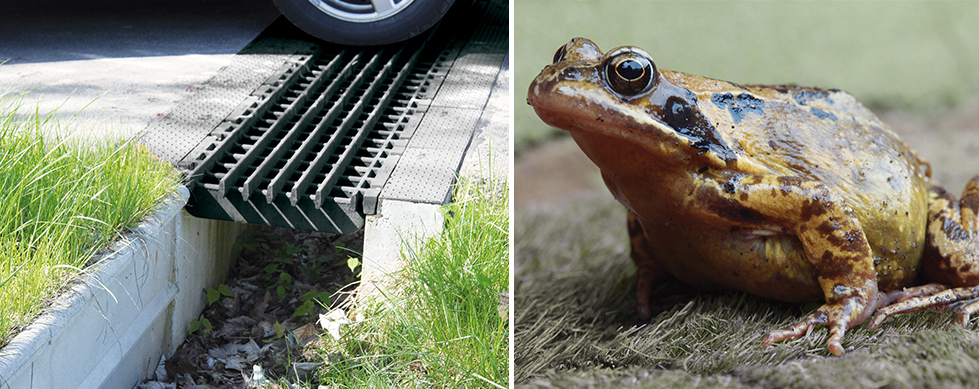
Super Amphibian Highway
02/12/2020 - 12.30pm - Super Amphibian Highway
Level 2
Description
This presentation will focus on biodiversity in the highway and the reasons for the decline of species in the UK, how construction, fragmentation and climate change have all played a role in the huge decline of species. We delve into some of the protective measures that have passed into legislation and future legislation like The Environment Bill, specifically Biodiversity Net Gains and how this will effect sites. We’ll look at Highways England's Environment and Biodiversity strategies over the course of RIS 2 with an optimistic outlook on what can be achieved.
Moving on to look at some of the technical solutions to help prevent fatalities, fragmentation, increase genetic diversity and achieve biodiversity net gains on the road network. Finishing with a series of case studies, where ACO products have been used to protect the natural world and help it prosper.
Learning outcomes
• Understand the factors affecting biodiversity and species decline
• Learn guidance and legislation that protects natural systems and biodiversity
• Understand the principals of biodiversity net gains
• Learn about Highways England's Environmental and Biodiversity Strategy on the road network
• Better understand solutions and technologies that can mitigate species decline in and around the highway
• Learn how to protect animals from road traffic accidents and fatalities through design
• Get best practice advice and learn from case studies

ACO has recognised that knowledge transfer is fundamental in keeping up-to-date with these latest advancements in surface water management and has unique professional development and training offers for industry professionals. These can be accessed in a number of different ways to suit your learning requirements; online, in-company, or at the state of the art training facility at ACO UK headquarters.
The extensive range of professional development material we offer is constantly updated and refreshed. Availability of certain programmes fluctuates according to demand. For both these reasons we recommend you register your interest by providing a few details in order for us to be able to keep you up to date.
All the information you enter is held only by ACO and not shared; the information will only be used to update you about our Professional Development services and materials. You can unsubscribe at any time should you no longer require this service.



